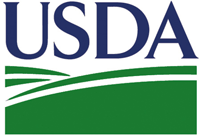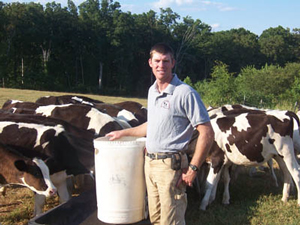 Arm & Hammer Animal Nutrition had made several upgrades to their website!
Arm & Hammer Animal Nutrition had made several upgrades to their website!
In addition to the upgrades, AHDairy.com currently allows producers and nutritionists access to important nutrition information in an easily accessible form. The Web site includes contact information for regional Arm & Hammer representatives, distributors or feed mills, as well as producer testimonials sharing their success stories with Arm & Hammer products. Take time to visit AHDairy.com today to see the resources available at your fingertips.
New Amino Acid balancing information. A new section focusing on the practice of amino acid balancing has been added to the Web site. Amino acid balancing ensures optimal levels of key limiting amino acids are provided for use by the cow. When amino acids are provided at optimal levels, performance can be enhanced even while dietary crude protein levels are reduced. These improvements can lead to greater income over feed cost (IOFC) for the dairy.
MEGAMINE-L® Rumen Bypass Lysine is a new, cost-effective, consistent bypass lysine source that will allow nutritionists to accurately balance for limiting amino acids, leading to maximized milking string performance and more efficient nutrient utilization. Collateral pieces focused on MEGAMINE-L—including an FAQ document, Research Bulletin and Benefit Summary—have been added.
Updated product research. More current research studies and overviews of the value-added products have been added to the Web site. These resources can help producers and nutritionists make nutritional decisions that will influence their herd productivity and IOFC.
FAQ documents. FAQ documents relating to reproduction and dietary cation-anion difference (DCAD) balancing provide the latest research findings surrounding both areas and details on how proper nutrition can ensure cows perform to their potential.
Timely industry articles. The latest articles published in dairy trade publications relating to feeding cows for optimal performance have been added to the Web site. These articles are summarized so visitors can easily find information. New functionality also allows for easier viewing and sorting of recently published articles and releases.
Source: Arm & Hammer Animal Nutrition




 Agriculture Secretary Tom Vilsack today announced the appointment of 12 members to the National Dairy Promotion and Research Board. All appointees will serve 3-year terms beginning immediately.
Agriculture Secretary Tom Vilsack today announced the appointment of 12 members to the National Dairy Promotion and Research Board. All appointees will serve 3-year terms beginning immediately.
 Easing regulatory hurdles that are impeding exports to Cuba could contribute to recovery in the dairy industry.
Easing regulatory hurdles that are impeding exports to Cuba could contribute to recovery in the dairy industry. “U.S. participation in the global dairy market is essential to putting the U.S. dairy industry on firmer footing going forward,” Wilson said. “It is critical that we work to expand opportunities for our dairy exports to allow our dairy producers, as well as their dairy manufacturing partners, to grow and prosper.”
“U.S. participation in the global dairy market is essential to putting the U.S. dairy industry on firmer footing going forward,” Wilson said. “It is critical that we work to expand opportunities for our dairy exports to allow our dairy producers, as well as their dairy manufacturing partners, to grow and prosper.”
 He’s the man behind the YouTube hit, “Water and Poo,” and now he’s also the new chairman of the American Farm Bureau Federation’s Young Farmers and Ranchers Committee. In this episode of the Milking Parlor, we meet Will Gilmer, a third-generation dairy farmer from Alabama, whose operation milks about 230 holsteins. And when those chores aren’t enough, he’s racking up more than 14,000 (and counting) views of his clever ditty sung about what to do with the waste from his cows, as he spreads that nutrient management across his pastures.
He’s the man behind the YouTube hit, “Water and Poo,” and now he’s also the new chairman of the American Farm Bureau Federation’s Young Farmers and Ranchers Committee. In this episode of the Milking Parlor, we meet Will Gilmer, a third-generation dairy farmer from Alabama, whose operation milks about 230 holsteins. And when those chores aren’t enough, he’s racking up more than 14,000 (and counting) views of his clever ditty sung about what to do with the waste from his cows, as he spreads that nutrient management across his pastures.
